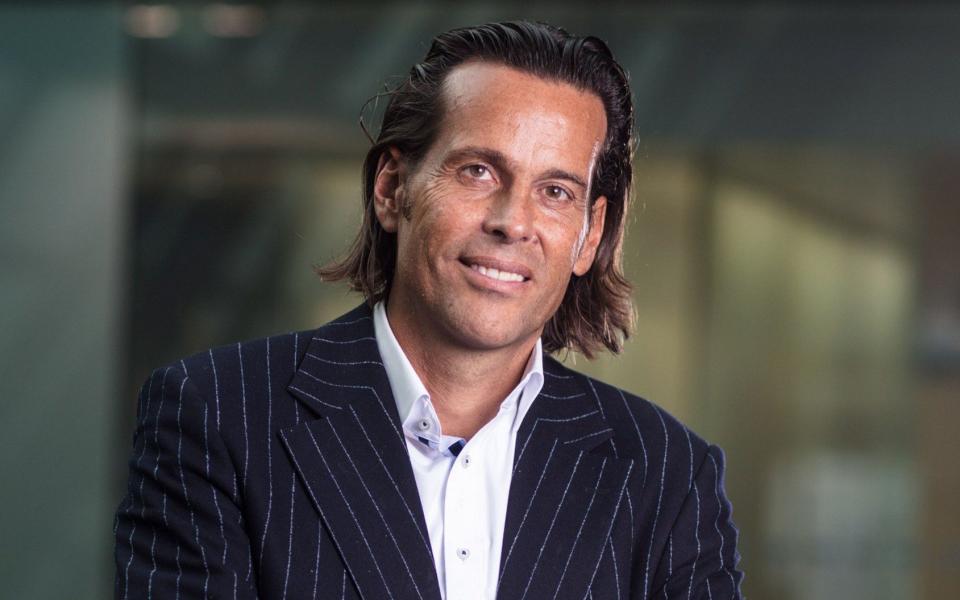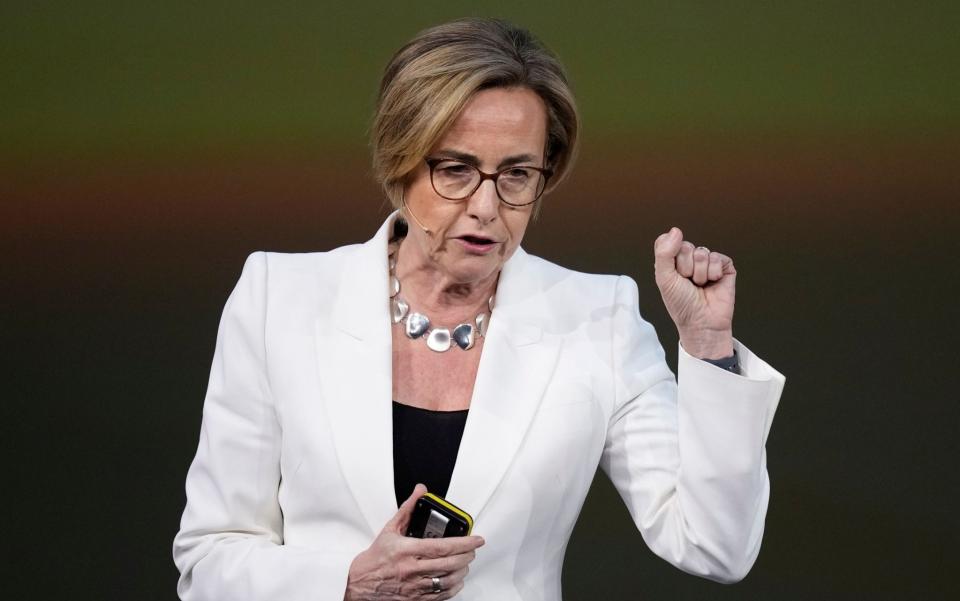Bid to build £15bn mobile titan would damage coverage upgrades, warns rival

A £15bn merger between Vodafone and Three risks leaving rivals with patchier connections unless their market power is curbed, the boss of Virgin Media O2 has suggested.
Lutz Schüler warned the tie-up would hand the combined company too much control of valuable radio spectrum used to operate mobile networks.
He said: “We understand the industry logic [for the merger] and need to support economies of scale.
“But we could not support our customers if the deal goes ahead without an agreement on spectrum and network sharing.”
VMO2 warned that the merged companies’ stranglehold over spectrum would lead to worse connections on rival networks and ultimately harm consumers.
Mobile spectrum relates to the various radio frequencies allocated to mobile operators and other communications businesses. Usage is regulated by Ofcom.
Spectrum is expected to be a key bone of contention among rival operators ahead of the planned Vodafone-Three merger, which would create the UK’s largest mobile network with 27 million customers.
The combined company would hold almost 50pc of all mobile spectrum and just under 60pc of C-band frequencies, a valuable portion of spectrum considered ideal for 5G.
VMO2 has already raised concerns with the Competition and Markets Authority (CMA), which has opened an investigation into the transaction.
However, VMO2 is also in direct negotiations with Vodafone and Three over a potential deal, and Mr Schüler said regulatory intervention may not be necessary.
BT-owned EE is also expected to call for spectrum concessions as part of the competition review.
Aside from spectrum, Mr Schüler also called for long-term assurances about VMO2’s current network sharing agreement with Vodafone.
The two companies jointly own mobile masts through their Cornerstone towers business. VMO2 sold part of its stake in a £360m deal last year, but retains a 33pc holding.
The warning from a major rival will add to concerns about the impact of the merger between Vodafone and Three.
MPs have called on the CMA to launch an in-depth investigation into the deal amid concerns that reducing the number of UK mobile operators from four to three could push up prices for consumers.
In 2016, regulators blocked a proposed tie-up between O2 and Three on competition grounds.

However, Vodafone and Three have argued that the market has changed considerably since then and say they require scale to keep investing in their networks.
Speaking at Mobile World Congress in Barcelona, Vodafone chief executive Margherita Della Valle said: “In-market consolidation needs to become possible in Europe. In a 5G world, it’s just not economical. It makes no sense to have four parallel 5G networks.”
The companies have pledged to invest £11bn in their combined UK 5G network over the next decade and create up to 12,000 new jobs. They have also insisted that the deal will not push up prices for consumers.
Separately, the deal is being reviewed on national security grounds amid concerns that Three’s Hong Kong-based parent company CK Hutchison could gain access to sensitive national infrastructure.
The mobile firms have rejected the concerns, arguing that CK Hutchison has been in the UK market for two decades.

 Yahoo Finance
Yahoo Finance